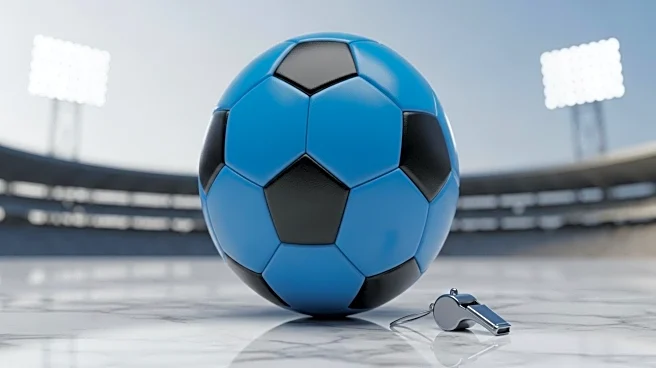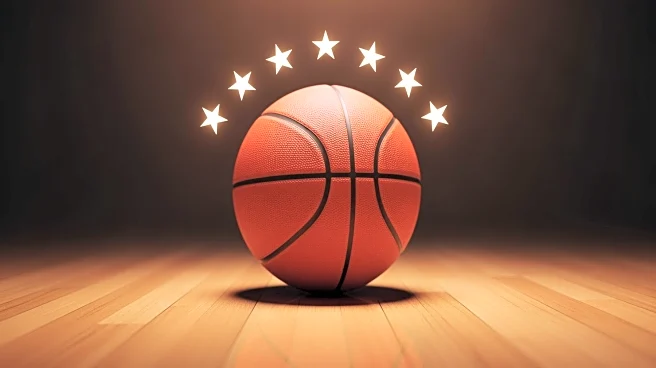What is the story about?
What's Happening?
Inter Milan's management has expressed dissatisfaction with Marcus Thuram's behavior during a recent match against Juventus. Despite scoring a crucial goal in the Derby d’Italia, Thuram's actions have been labeled as 'inappropriate' by the club's hierarchy. The incident occurred when Thuram scored with a header, putting Inter Milan ahead in the 76th minute. However, he chose not to celebrate the goal, which raised concerns among the club's officials. Additionally, Thuram appeared indifferent even after Inter Milan fell behind again in the match. His relaxed demeanor during a VAR review, where he was seen joking with his brother, further fueled the management's discontent.
Why It's Important?
The criticism from Inter Milan's management highlights the importance of player conduct and attitude in professional sports. Thuram's behavior could impact his standing within the team, potentially affecting team dynamics and morale. Such incidents can influence a player's future with the club, as management may reconsider their role or involvement in upcoming matches. This situation underscores the broader implications of player professionalism and the expectations placed on athletes to maintain a competitive spirit and commitment to their team, especially during high-stakes matches.
What's Next?
Inter Milan's management may take further action to address Thuram's conduct, which could include discussions with the player or adjustments to his role in the team. The club might also implement measures to ensure that players adhere to expected standards of behavior during matches. This incident could lead to increased scrutiny of player attitudes and actions, prompting other clubs to evaluate their own policies regarding player conduct. The outcome of this situation may influence how teams manage player behavior and maintain team cohesion in the future.
Beyond the Headlines
This incident raises questions about the cultural and psychological aspects of sportsmanship and player behavior. It highlights the potential disconnect between individual player attitudes and team expectations, which can affect team performance and public perception. The situation may also spark discussions about the pressures athletes face and how they cope with the demands of professional sports. Understanding these dynamics can lead to more supportive environments that balance competitive success with player well-being.

















